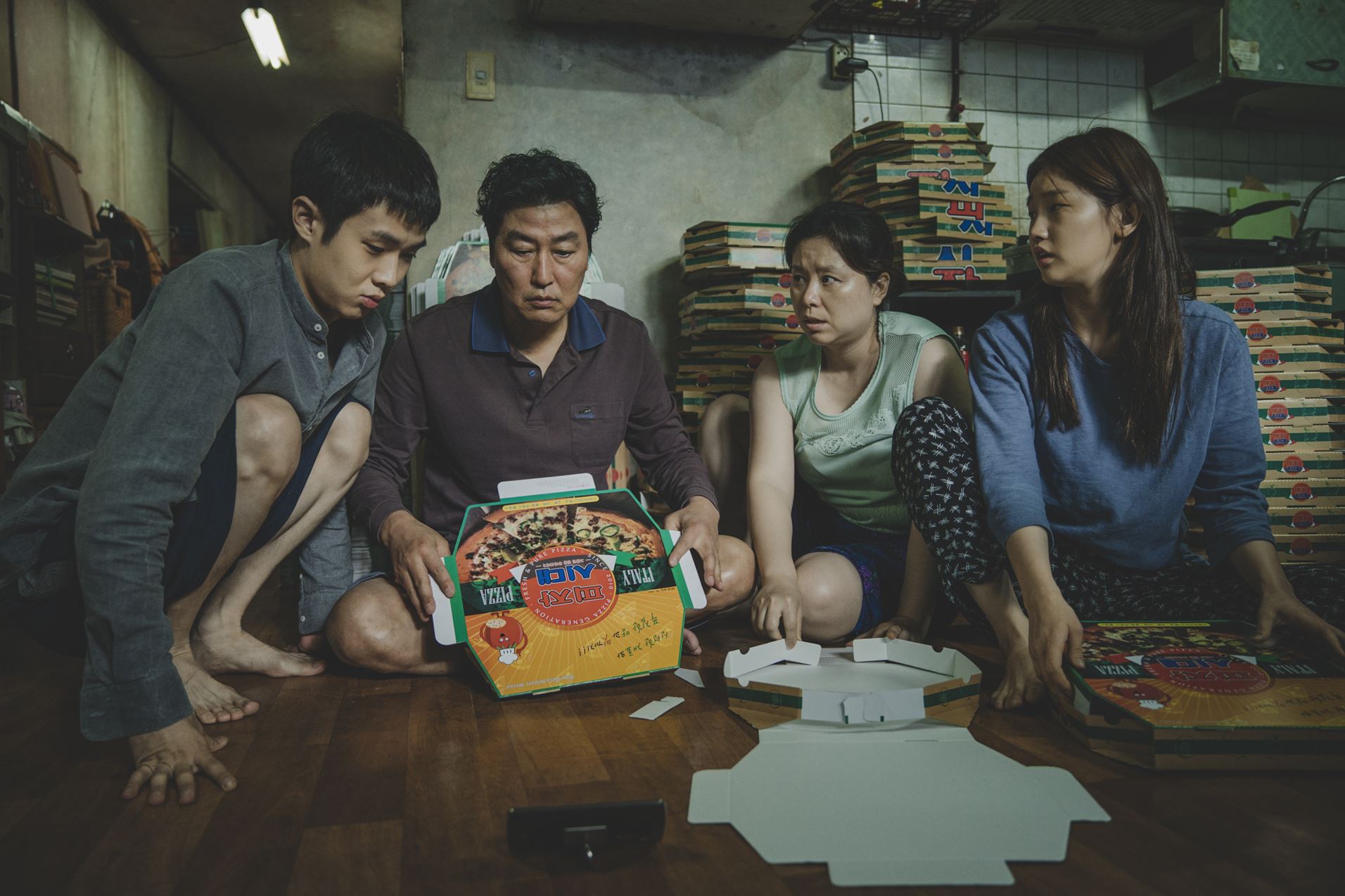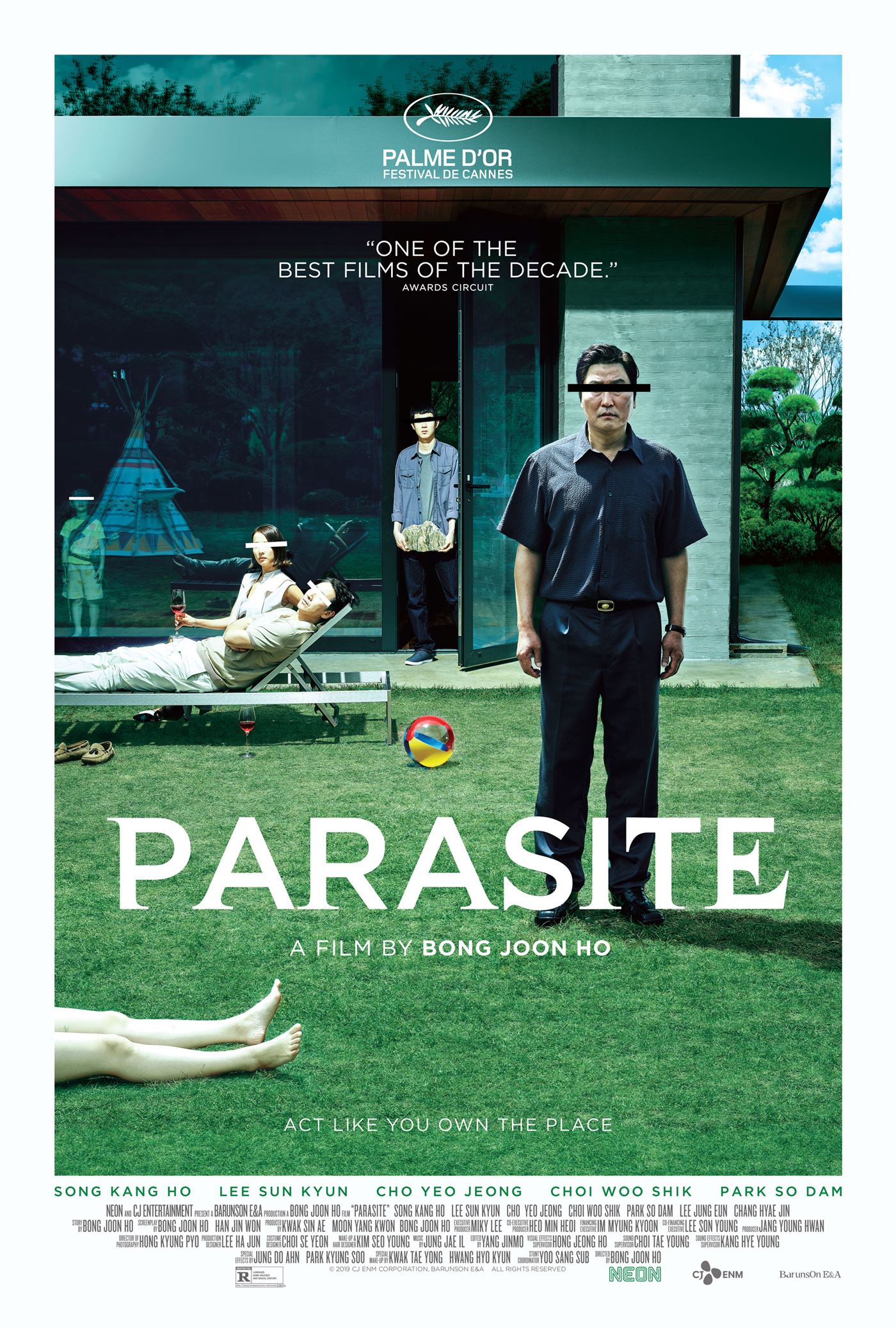Cinema can get boring pretty quickly when it puts too much emphasis on a message and not enough on the story. However, when a film like “Parasite” can seamlessly deliver an engaging story, while slipping in its message to the viewer, it creates one of the most fascinating films this year.
Bong Joon-Ho is a director that’s been on film fanatics’ radar since his second feature film, “Memories of Murder,” and has been one of the larger influences in modern film for the past two decades. So, that’s why it was no surprise that “Parasite” made a very firm argument for film of the year.
The film stars a South Korean family, all unemployed, in desperate need of money. In these trying times, the son, Ki-Woo, begins working as an English tutor for a very wealthy family named the Parks.

Secrets revealed by husband (Sun-kyun Lee) to wife (Yeo-jeong Jo) of the Park family. Photo courtesy of NEON + CJ Entertainment.
After one studying session, Ki-Woo and his family devise a plan to employ the entire Ki family under the Parks employment. From the start of the film I was invested in the plot and I really felt myself rooting for this family, despite them doing a lot of wrong things.
The film splits itself among many genres, as the comedic moments are very funny, while the dramatic moments are very serious. The writing is brilliant, giving just the perfect amount of information to the viewer at the appropriate time. The dialogue between the family when they are all together is comedic, and director Joon-Ho isn’t afraid to take twists and turns within the film.
The thematic presentation of classicism is well done, and although this was created to relate to South Koreans, I feel like anyone in the world that deals with class struggle will resonate with the film’s message.
“Parasite” does not fail to keep a tight narrative. I never felt as though I was waiting for something to happen. Each moment in the film felt deliberate and I was engaged the entire two hours and 12 minutes.

The film “Parasite” follows the Kim family (Woo-sik Choi, Kang-ho Song, Hye-jin Jang, and So-dam Park). Photo courtesy of NEON + CJ Entertainment.
The cinematography was interesting and a lot of the shots were designed around the theme. The scenes taking place in lower class areas had a tighter shot composition, whereas the shot composition opened up in the upper class areas. Even some of the singles for the wealthy family were wide open, whereas I felt like the camera was increasingly close to the Ki family.
Joon-Ho pairs up once more with actor Kang-Ho Soon, who plays Ki-Taek, the father of the family who claims to have a plan but seems unsure of where that plan is going. Soon’s performance blew me away, and his counterparts were notable, particularly Choi Woo Shik who also appeared Joon-Ho’s film “Okja.” The performances can be attributed to great writing, but the choices made by these actors were pretty spectacular.
This is by far Joon-Ho’s most approachable film for the casual moviegoer. I would even recommend this film to people who are not fans of foreign films as it is very digestible. There is no flashy or poetic dialogue throughout the film, and the story is so fun that the deeper messages in the film can go completely unnoticed and the viewer would still enjoy it.
“Parasite” is definitely close to being my favorite personal film of the year, but I fear it might not get any acknowledgement at the Academy Awards. The film did win the Palm D’or at Cannes this year, which is more than exceptional, but it would be exciting to see American audiences take interest in such a masterful film.



